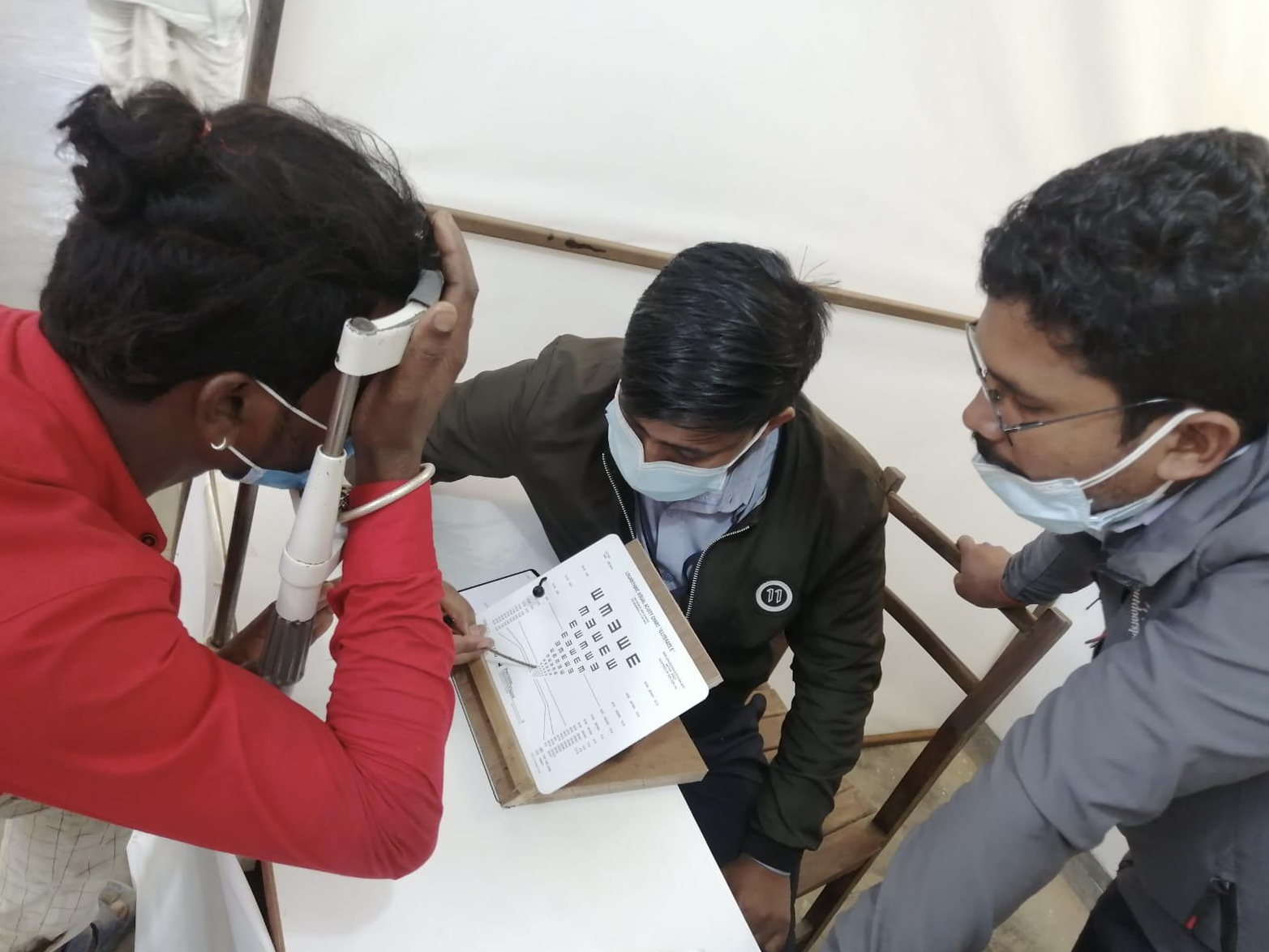Publication
- Published in Translational Vision Science & Technology, 2022
Background
Almost a decade ago, Peek developed and validated Peek Acuity, a smartphone-based distance visual acuity test. However, around 500 million people are estimated to have untreated near-vision impairments. To identify all of those in need of treatment, it is vital that accurate and accessible tests for near vision are available. This study compared Peek’s smartphone-based near vision test against conventional vision testing in Nepal, in almost 500 participants.
What did the research show?
- Reliable smartphone screening: the study found high levels of agreement with a reference near vision test as well as high levels of repeatability among independent examiners. This means that the near vision test developed by Peek is reliable and can be used for effective vision screening.
- Accurate testing for onward referral: Peek’s near vision test gave comparable results to conventional testing, meaning that it can be used to make accurate decisions about whether a participant needs to be referred onwards for further testing.
- Simple technology: There was no difference between the time taken to test using Peek’s smartphone-based near vision test and conventional tests.
The original Peek Acuity app, which tests distance vision only, has been successfully validated and embedded across numerous programmes worldwide. Combining this with digital near vision testing, particularly in populations at risk of presbyopia who can be identified in the same visit, will facilitate the identification and management of both near and distance visual impairments. It may also make vision measurement more appealing to organisers of community health surveys and surveillance who are already using digital devices for data collection. The Peek Near Vision test we have validated in this study could serve this purpose.”
Dr Marzieh Katibeh
Study lead author and Peek researcher
Collaborators
- Peek Vision
- Sagarmatha Choudhary Eye Hospital, Nepal
- International Centre for Eye Health at the London School of Hygiene and Tropical Medicine, UK
- Nepal Netra Jyoti Sangh, Nepal
Funding
The National Institute for Health Research (NIHR) (using the UK’s Official Development Assistance (ODA) Funding) and the Wellcome Trust under the NIHR-Wellcome Partnership for Global Health Research.
